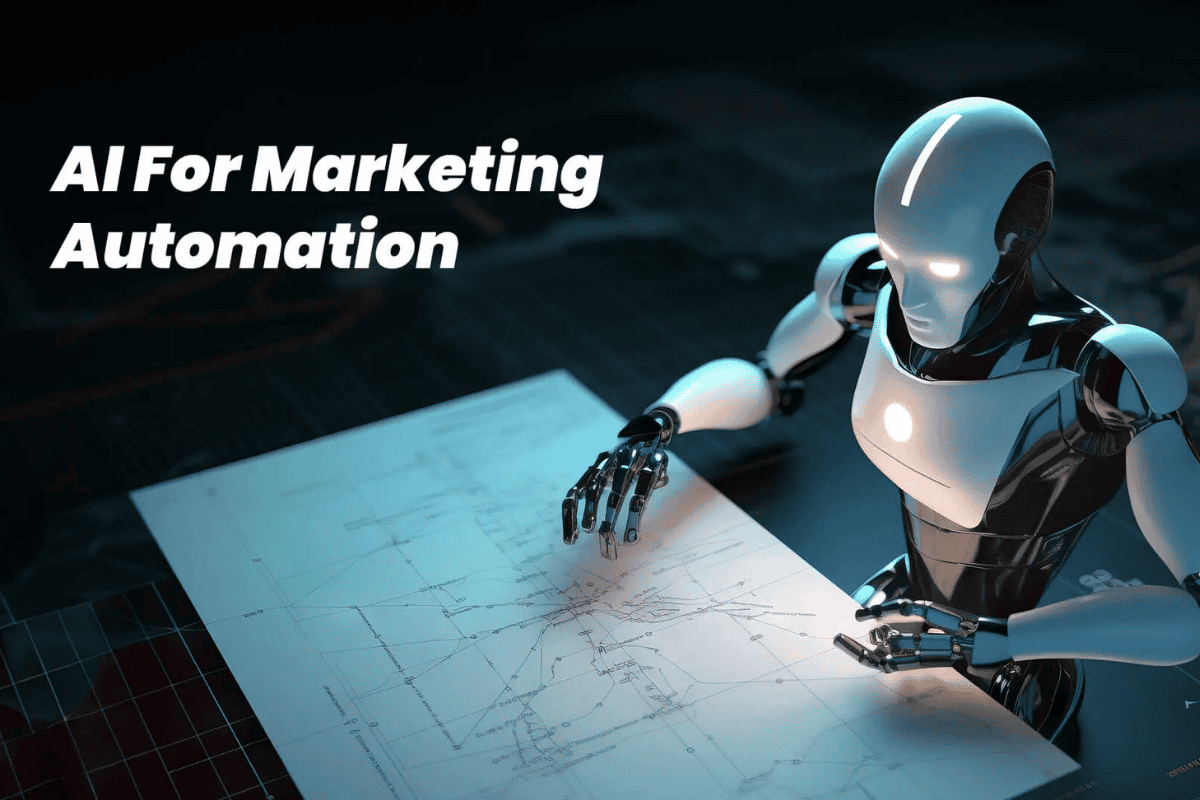
AI & automation trends shaping marketing strategies in 2025
Key AI and automation trends shaping marketing strategies in 2025 center around transforming marketing into a highly efficient, personalized, and autonomous discipline.

The world of Customer Relationship Management (CRM) is undergoing a seismic shift in 2025. No longer just a repository for customer data, CRM systems are transforming into intelligent, predictive, and deeply personalized relationship engines. At the heart of this transformation is Generative AI, a technology that is fundamentally changing how businesses connect with customers, streamline operations, and deliver value.
This year’s CRM trends are not only about technological upgrades but also about a cultural and strategic pivot toward customer-first thinking — where every interaction is informed, timely, and deeply relevant. Let’s explore the six key CRM trends shaping 2025 and how they’re setting the standard for the next era of customer engagement.
Generative AI has moved from experimental pilot projects to being the default engine inside CRM platforms. It automates routine but time-consuming tasks, allowing sales and marketing teams to reclaim hours each week for higher-value work.
Today’s AI-enhanced CRMs can:
AI-powered assistants are becoming a non-negotiable feature in CRMs, enabling smarter, more targeted, and more valuable interactions with customers. Imagine your CRM not just storing customer history, but actively suggesting the next best conversation, offer, or piece of content — that’s now reality.
Impact: This shift means less administrative burden for teams and more time for building human connections, closing deals, and delivering exceptional customer experiences.
The age of generic marketing blasts is over. In 2025, businesses are doubling down on hyper-personalization, driven by AI’s ability to process vast amounts of behavioral, preference, and transactional data.
CRMs now integrate browsing history, buying patterns, and even social media activity to create micro-segments — small, highly targeted customer groups. This enables:
The demand for personalization is clear: 79% of customers expect tailored experiences, and companies that fail to deliver risk losing loyalty. AI in CRMs not only meets these expectations but also anticipates them, ensuring businesses stay a step ahead.
Example: An e-commerce retailer’s CRM might detect a customer browsing hiking gear and automatically send them a limited-time offer on boots, paired with curated blog content on local trails.
Today’s customers engage with brands across multiple touchpoints — from mobile apps and websites to social media, live chat, and email. In 2025, the most effective CRMs provide true omnichannel integration, ensuring that no matter where the conversation happens, it feels seamless and connected.
Modern CRM platforms unify these interactions into a single, cohesive customer view. This means a support agent on live chat can see what the customer last purchased, the marketing emails they received, and their recent app usage — all in real time.
Benefits:
Omnichannel CRMs are not just about convenience; they are about delivering relevance at every stage of the customer lifecycle.
In 2025, automation is not an optional add-on; it’s a core CRM capability. AI-driven automation handles repetitive, low-value tasks with speed and precision, freeing human talent for strategic and creative endeavors.
Common automations include:
24/7 AI chatbots are now standard, capable of answering common queries, routing complex issues to the right team, and even personalizing conversations based on CRM data.
Result: Employees spend more time solving complex problems and nurturing customer relationships instead of drowning in manual processes.
The most advanced CRMs are evolving into decision-support systems. They don’t just record what has happened — they predict what will happen next.
Capabilities include:
Predictive analytics helps organizations allocate resources wisely, focus on high-value opportunities, and personalize outreach at scale. Businesses that leverage these capabilities gain a competitive edge by acting on data before competitors even see the trend forming.
In 2025, the Internet of Things (IoT) is adding a new dimension to CRM capabilities. Connected devices generate real-time data streams that feed directly into CRM systems, enabling more proactive and personalized engagement.
Examples:
This integration extends the CRM’s role from reactive service to anticipatory service, creating opportunities for upselling, loyalty building, and brand differentiation.
The CRM industry is expanding rapidly, with the global market projected to reach $82.7 billion in 2025. While established players like Salesforce, HubSpot, and Microsoft Dynamics remain dominant, a wave of AI-first, flexible CRM vendors is entering the scene, targeting niche markets and offering specialized features.
This competitive environment is pushing vendors to innovate faster, integrate more deeply with business ecosystems, and focus on user-friendly, automation-rich experiences. Businesses adopting modern CRMs early are positioning themselves to outpace slower-moving competitors.
The CRM of 2025 is intelligent, predictive, omnichannel, and deeply personal. At its core, Generative AI is not replacing human relationships — it’s enhancing them by removing friction, providing insight, and enabling more meaningful interactions.
Here’s the big picture:
In this environment, businesses that embrace AI-powered CRM innovations are not just keeping pace — they are defining the new standard for customer experience. The message for 2025 is clear: Technology is the tool, but empathy remains the differentiator. The companies that blend both will lead the way in the decade ahead.

Key AI and automation trends shaping marketing strategies in 2025 center around transforming marketing into a highly efficient, personalized, and autonomous discipline.

In 2025, marketers will rely on a new generation of advanced tools for real-time customer insights that blend AI, automation, and data integration to deliver actionable intelligence quickly and efficiently.

The most effective SEO tools for AI integration in 2025 are characterized by advanced AI features that automate and optimize content creation, keyword research, technical SEO analysis, and real-time performance tracking.